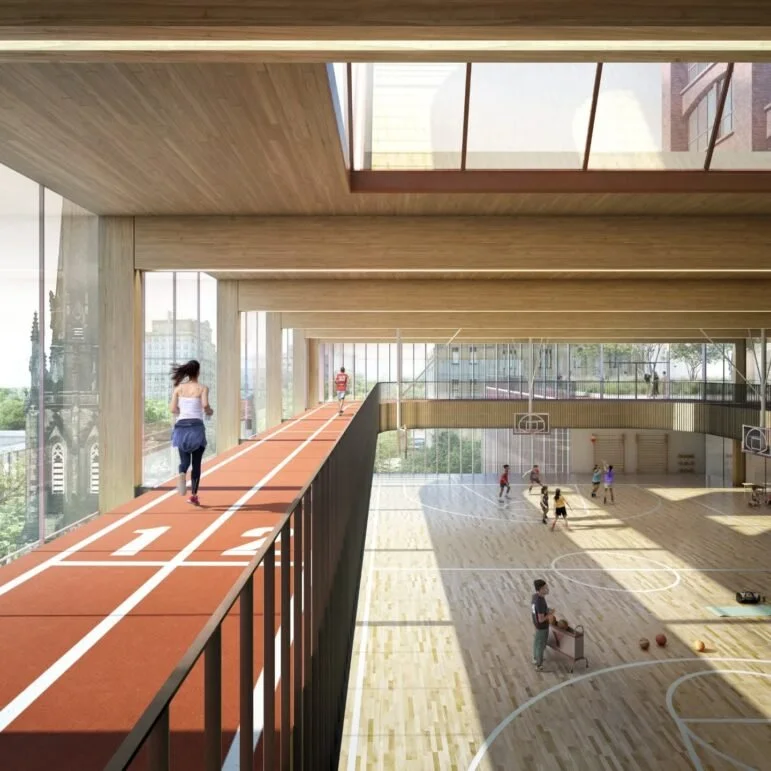Asking Better Questions | Highlighting St. Paul’s in Hamilton
We’ve been wondering about a good question that a writer asked about congregations today. It came out of reframing a question that we hear often in congregational circles - “How Do We Save Our Church?”
The better question is:
"What will the future need from a congregation like ours?”
This past June, as part of our Creative Ways 2025 conference in Hamilton, we had the privilege of welcoming The Rev. Dr. Mark Lewis, interim moderator of St. Paul’s Presbyterian Church, to reflect with us on just this kind of question. Many of you in the Presbyterian Church in Canada may already know Mark as the Moderator of the 128th General Assembly in 2002. Today, he continues to offer thoughtful, grounded leadership at St. Paul’s Hamilton. We wanted to share a bit of the congregation’s story with you because we believe it offers a compelling example of what it means to listen deeply to one’s context and respond with courage and care.
At Creative Ways 2025, Rev. Dr. Mark Lewis shared how the congregation of St. Paul’s found itself in the familiar situation many churches in Canada are facing: an aging building in the middle of a rapidly changing city.
But what stands out about St. Paul’s is what the congregation decided to do about it. Rather than becoming stuck in anxiety or nostalgia, they leaned into the opportunity to ask better questions.
The congregation considered what it might look like to shift their focus from preserving the institution at all costs toward serving their neighbours with imagination and grace.
Over the past few years, those better questions led them into unexpected and transformative partnerships. One of the most significant came in 2021, when the congregation agreed to host a supervised consumption and treatment services (CTS) site operated by Hamilton Urban Core Community Health Centre. At a time when drug use, homelessness, and mental health crises were growing rapidly in the downtown core, the congregation opened their space as a place of care, compassion, and harm reduction.
This decision was certainly a test of faith and perseverance. Hosting a site like this meant opening their space to people living with substance use disorder, mental health challenges, and the many layers of vulnerability that come with those realities. Medical emergencies on site were not uncommon. And in a downtown core under pressure, it’s no secret that many struggle to see the value in this approach to harm reduction. The site’s proximity to a daycare eventually meant that, under new provincial rules, it would be forced to close. Still, in this CBC article about the change, Rev. Lewis spoke plainly about what the congregation had witnessed: “We believe the safe injection site has reduced violence significantly,” he said. “We feel disappointed because we feel that the safe injection sites are effective.”
After the CTS closed, the congregation continued asking what it meant to be faithful stewards of their space and presence in the city. The experience of hosting the CTS had already expanded their understanding of ministry. It had brought them into closer contact with the realities of their neighbourhood and deepened their commitment to responding with both compassion and courage.
That same openness to partnership also shaped their approach to the church property itself. Through conversations with the YMCA and Collecdev-Markee, a development group working on a major housing and community project in the downtown core, the congregation entered into a conditional sale agreement for the non-heritage hall portion at the rear of the property. That land will now become part of a larger redevelopment that includes affordable housing, a new 55,000 square-foot YMCA, and shared public spaces for community use. The church sanctuary will remain.
These decisions were not easy. They involved loss, resistance, listening, and more than a few difficult conversations. But they also sparked something new and exciting at St. Paul’s. As the congregation began to see themselves as neighbours invested in the city’s future, their openness to take these big steps of faith grew.
We’re excited to see what comes next at St. Paul’s. Just this past week, it was announced that the federal government has included funding for the new Downtown Hamilton YMCA in the 2025 budget—a big step forward for the project. Rev. John is looking forward to celebrating with them for their anniversary service on Sunday, November 16.
P.S. Save the date for Creative Ways 2026, happening June 7th in the Toronto area. We can’t wait to gather again to explore bold, creative, and faithful ways of being the Church together.



